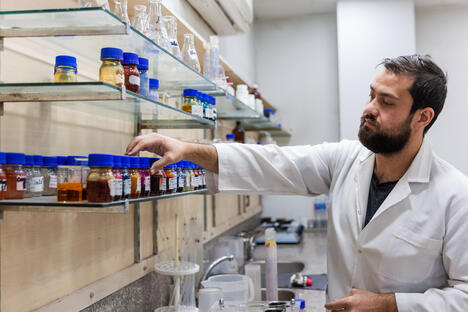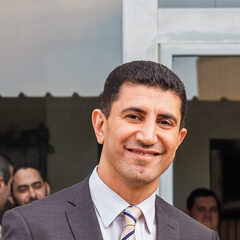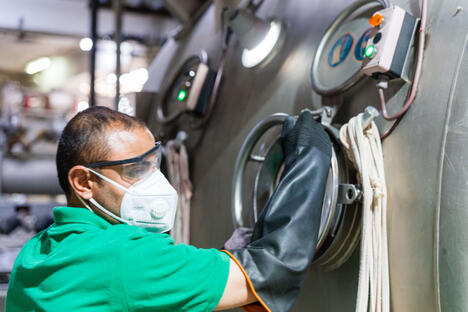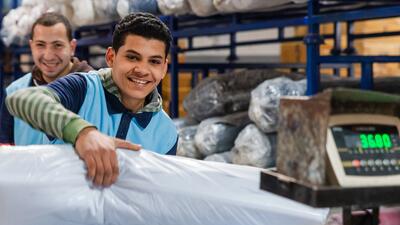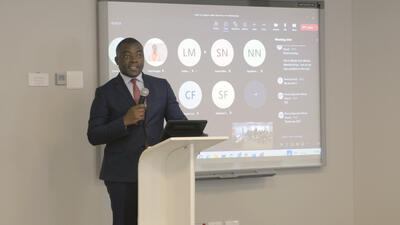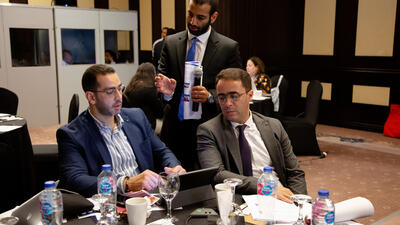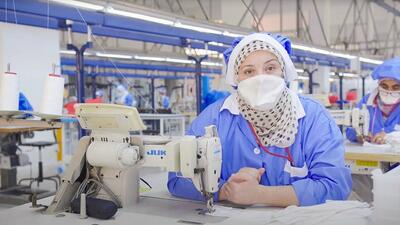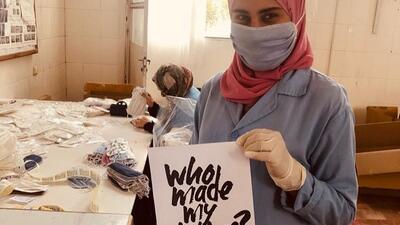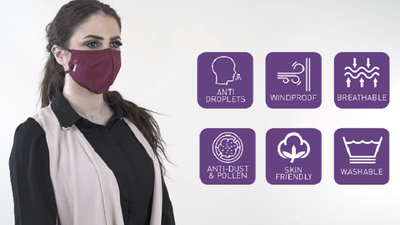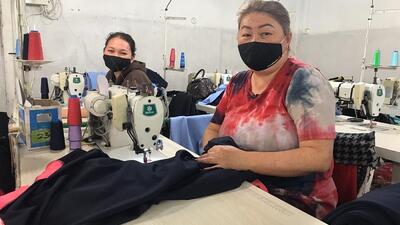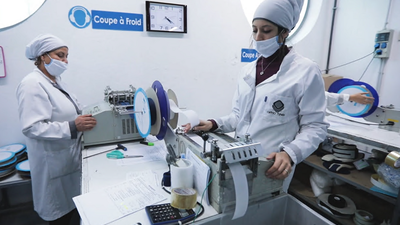
A rewarding journey towards resource efficiency in Egyptian textiles
The textile industry globally is energy intensive, and Egyptian garment maker Esperanza is no different. But this small firm has adapted its work to save energy, reduce waste, and save money.
Rising energy costs, coupled with the need to lower carbon emissions, prompted the Esperanza to look at how to make its production processes more sustainable. Their work also requires vast quantities of water and uses chemicals that must be carefully applied and disposed of to avoid health and environmental hazards.
ITC’s GTEX/MENATEX programme has designed training and coaching for companies on Resource Efficiency and Circular Production (RECP). The programme helps beneficiaries transition into greener production. As regulators and buyers demand greener processes, companies who meet these expectations have a competitive edge.
In Egypt, the project offered training and coaching tailored to Esperanza’s needs, focused not only on RECP techniques, but also on lean manufacturing to improve production processes and drive down costs. Esperanza’s management boarded this journey. The company completed RECP coaching and implemented a strategy based on a cost–benefit analysis of circular concepts ‘reduce, reuse, recycle’.
While small firms in developing countries often have fewer resources to restructure production, they can show great flexibility in adopting green technologies and business models. This was the experience of Esperanza, which achieved considerable resource and cost savings on energy, water, and waste.
Electrical energy: Good housekeeping measures generated an annual cost saving of $3,800, with savings of 49 megawatt hours/year of energy and 25 tons/year in carbon dioxide (CO2) emissions. By shifting to natural gas vehicles, the company saved up to $3,100 and about 10.6 tons/year of CO2 emissions.
Thermal energy: With the preventive maintenance of its boiler, Esperanza saved an annual $3,200.
In addition, by closely controlling the steam flow through its pipeline system, the company is expected to save costs amounting to $16,000 a year, with savings of 862 megawatt hours/year of energy and 160 tons/year in CO2 emissions.
Water: By implementing wastewater treatment measures, the company now re-uses almost 60% of its washing water in the dye house. Esperanza is expected to save $11,000 of costs with a 16,000 cubic metre reduction in water consumption per year.
Waste: Investment in special machinery to produce drawcords from knitting production waste has tripled the value of yarn waste previously sold in raw form.
The introduction of lean manufacturing enabled Esperanza to identify unused inventory and capital, saving nearly $119,000, optimize space utilization, shorten lead times, and lower production costs.
‘The collaborative process in the project is ideal, the outcomes are everywhere, and we feel that industry needs are really being heard and attended to,' said Esperanza’s executive director Mohamed Magdy.
Fortified by this success, Esperanza is confident of expanding into demanding green markets and of securing trust with buyers. ITC will continue to support companies in their transition to resource efficiency and low-carbon production, preparing them to comply with existing and emerging industry standards and legislation in export markets.
More than 66 companies in the Middle East and Africa have benefited from RECP since 2019. Good progress has been made – including environmental improvements of 49 firms leading to yearly cost and energy savings exceeding $2 million and one million kilowatt hours, respectively. Sustainability, however, remains a continuous journey.
About the programme
The Global Textiles and Clothing Programme (GTEX) and its related work in the Middle East and North Africa (MENATEX) supports small and medium-sized enterprises and business support organizations working in the textile and clothing industry in developing countries to increase their export competitiveness.
The GTEX/MENATEX programme is funded by the State Secretariat for Economic Affairs (SECO) of the Swiss Confederation and the Swedish International Development Cooperation Agency (Sida), focusing on six priority countries (Egypt, Morocco, Jordan, Kyrgyzstan, Tajikistan and Tunisia).




